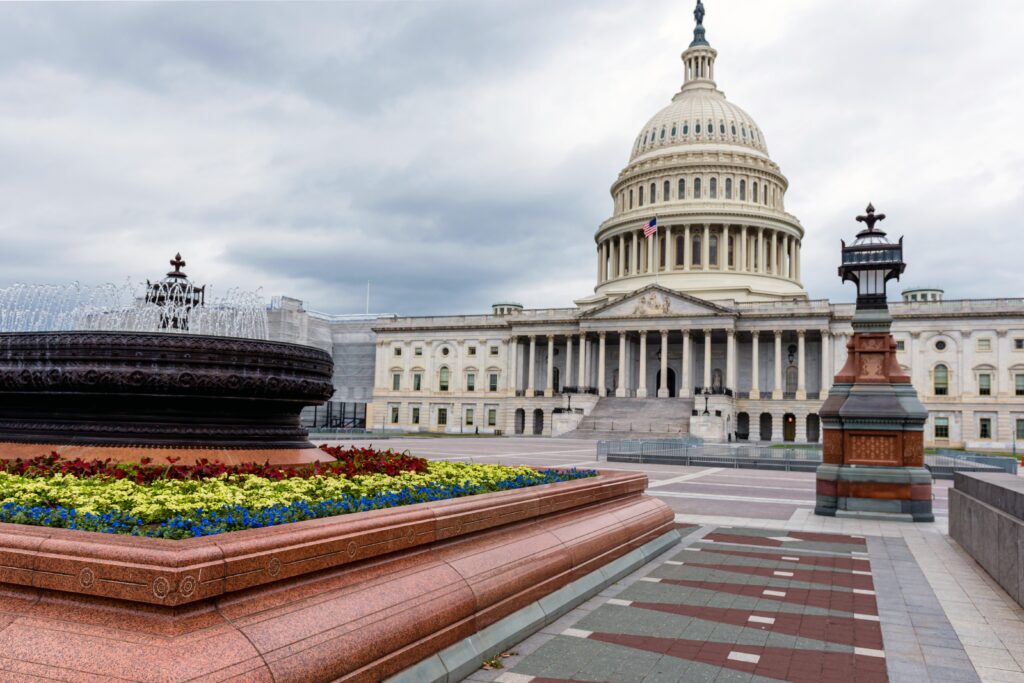It was a busy week for the federal agency that oversees Medicare and Medicaid.
To say that the Centers for Medicare & Medicaid Services (CMS) has had a busy week would probably be a glaring understatement.
The federal agency issued four proposed rules over the span of five days, unveiling draft payment policy and rate updates for skilled nursing facilities (SNFs), inpatient psychiatric facilities (IPFs), inpatient rehabilitation facilities (IRFs), and hospices.
SNF Proposed Rule
The SNF rule also included proposals for the SNF Quality Reporting Program (QRP) and the SNF Value-Based Purchasing (VBP) Program for the 2024 fiscal year (FY) and future years. A key provision, officials said, is that the rule would eliminate the requirement for facilities to actively waive their right to a hearing in writing, and instead treat the failure to submit a timely hearing request as a constructive waiver.
“These actions support the Administration’s plan to improve safety and quality of care in nursing homes, and CMS remains committed to proposing minimum staffing standards for nursing facilities later this spring,” the agency added in a press release announcing the rule.
CMS estimated that the aggregate impact of the rule would result in a net increase of 3.7 percent, or approximately $1.2 billion, in Medicare Part A payments to SNFs for FY 2024, reflective of a $2 billion increase resulting from the 6.1-percent net market basket update to the payment rates, which is based on a 2.7-percent SNF market basket increase plus a 3.6-percent market basket forecast error adjustment (and less a 0.2-percent productivity adjustment, as well as a -2.3-percent, or approximately $745 million, decrease in the FY 2024 SNF PPS (Prospective Payment System) rates as a result of the second phase of the Patient-Driven Payment Model (PDPM) parity adjustment recalibration).
IPF Proposed Rule
The IPF rule included proposed annual updates to PPF rates, the outlier threshold, the wage index, and associated impact analysis, along with a proposal to rebase and revise the IPF market basket, as well as a proposal to modify regulations to allow hospitals to open and begin billing Medicare for an excluded IPF unit anytime within the cost reporting year – something CMS believes “will help increase access to essential inpatient psychiatric services and available beds.”
Additionally, for the IPF Quality Reporting (IPFQR) Program, CMS is proposing to adopt four new measures, modify one existing measure, remove two existing measures, and adopt and implement a data validation pilot. One of the measures being proposed is a statutorily required “patient experience survey measure.”
CMS estimated that payments to IPFs would increase by 1.9 percent, or $55 million, in FY 2024, relative to IPF payments in FY 2023. CMS is proposing to update the IPF PPS payment rates by 3.0 percent, based on the proposed 2021-based IPF market basket increase of 3.2 percent, less a proposed 0.2-percentage point productivity adjustment.
IRF Proposed Rule
The IRF proposed rule includes annual updates to the PPS rates, the outlier threshold, the case-mix-group relative weights and average length of stay values, the wage index, and associated impact analysis. In addition, the rule includes a proposal to revise and rebase the IRF market basket, as well as a proposal similar to that of the IPF proposal: to modify regulations to allow hospitals to open and begin billing Medicare for an excluded IRF unit anytime within the cost reporting year.
CMS is also proposing two new and one modified measure proposals for the IRF Quality Reporting Program (QRP), along with three measure removals and is proposing one public reporting policy.
For FY 2024, CMS is proposing to update the IRF PPS payment rates by 3.0 percent based on the proposed IRF market basket update of 3.2 percent, less a proposed 0.2-percentage point productivity adjustment. Officials also said that if more recent data becomes available (for example, a new estimate of the market basket update or productivity adjustment), CMS would use it to determine the FY 2024 market basket update and the productivity adjustment in the final rule. In addition, the proposed rule contains an adjustment to the outlier threshold to maintain outlier payments at 3.0 percent of total payments, resulting in a 0.7-percentage point increase in outlier payments. CMS estimated that overall IRF payments for FY 2024 would increase by 3.7 percent (or $335 million) relative to payments in FY 2023.
Hospice Proposed Rule
Lastly, the hospice rule includes information on utilization trends and solicits comments regarding “information related to the provision of higher levels of hospice care, spending patterns for non-hospice services provided during the election of the hospice benefit, ownership transparency, equipping patients and caregivers with information to inform hospice election decision-making selection, and ways to examine health equity under the hospice benefit.”
The rule also proposes that physicians who order or certify hospice services for Medicare beneficiaries must be enrolled in Medicare or validly opted out as a prerequisite for payment for the hospice period of care in question.
“CMS is looking closely at the hospice industry, as we have increasing concerns about fraud, waste, and abuse in this space,” the agency’s press release read. “While this rule takes initial steps, this is part of a larger effort by CMS to address hospice fraud, waste, and abuse that will continue this year.”
The proposed FY 2024 hospice payment update percentage is 2.8 percent, or an estimated increase of $720 million in payments from FY 2023: a result of a 3.0 percent market basket percentage increase reduced by a 0.2 percentage point productivity adjustment. The hospice payment update includes a statutory aggregate cap that limits overall payments per patient made to a hospice annually; the cap amount is $33,396.55, equal to the FY 2023 cap amount ($32,486.92) updated by the proposed FY 2024 hospice payment update percentage of 2.8 percent.
The proposed rule for SNFs can be downloaded from the Federal Register at https://www.federalregister.gov/public-inspection/2023-07137/medicare-program-prospective-payment-system-and-consolidated-billing-for-skilled-nursing-facilities. Public comments on these proposals will be accepted until June 5.
The proposed rule for IPFs can be downloaded from the Federal Register at https://www.federalregister.gov/public-inspection/2023-07122/medicare-program-fy-2024-inpatient-psychiatric-facilities-prospective-payment-system—rate-update. Public comments on these proposals will be accepted until June 5.
The proposed rule for IRFs can be downloaded from the Federal Register at https://www.federalregister.gov/public-inspection/2023-06968/medicare-program-inpatient-rehabilitation-facility-prospective-payment-system-for-federal-fiscal. Public comments on these proposals will be accepted until June 2.
The proposed rule for hospices can be viewed at the Federal Register at https://www.federalregister.gov/public-inspection/2023-06769/medicare-program-fiscal-year-2024-hospice-wage-index-and-payment-rate-update-hospice-conditions-of.
Public comments on these proposals will be accepted until May 30.






















